
Pafev-SP Tablet
Manufacturer
Snu Biocare
Salt Composition
Aceclofenac (100mg) + Paracetamol (325mg) + Serratiopeptidase (15mg)
Key Information
Short Description
Pafev-SP Tablet is a combination medicine used to relieve pain and swelling in various conditions like muscle pain, joint pain, and postoperative pain.
Dosage Form
Tablet
Introduction
Pafev-SP Tablet is a combination medicine used to relieve pain and swelling in various conditions like muscle pain, joint pain, and postoperative pain. It effectively alleviates pain and inflammation in conditions like rheumatoid arthritis, ankylosing spondylitis, and osteoarthritis.
Directions for Use
Take this medicine in the dose and duration as advised by your doctor. Swallow it as a whole. Do not chew, crush or break it. Pafev-SP Tablet is to be taken with food.
Safety Information
Side Effects
No common side effects listed.
Alcohol Warning
It is unsafe to consume alcohol with Pafev-SP Tablet.
Breastfeeding Warning
Information regarding the use of Pafev-SP Tablet during breastfeeding is not available. Please consult your doctor.
Pregnancy Warning
Pafev-SP Tablet may be unsafe to use during pregnancy. Although there are limited studies in humans, animal studies have shown harmful effects on the developing baby. Your doctor will weigh the benefits and any potential risks before prescribing it to you. Please consult your doctor.
Interacting Medicines
Do not take it with any other medicine containing acetaminophen (drugs for pain/fever or cough-and-cold) without asking your doctor first.
How it works
Pafev-SP Tablet is a combination of three medicines: Aceclofenac, Paracetamol and Serratiopeptidase. Aceclofenac is a non-steroidal anti-inflammatory drug (NSAID) and Paracetamol is an antipyretic (fever reducer). They work by blocking the release of certain chemical messengers in the brain that cause pain and fever. Serratiopeptidase is an enzyme which works by breaking down abnormal proteins at the site of inflammation and promotes healing.
Quick Tips
You have been prescribed this combination medicine for relieving pain and inflammation. Take it with food to avoid getting an upset stomach. It may cause dizziness and sleepiness. Do not drive or do anything that requires mental focus until you know how Pafev-SP Tablet affects you. Avoid consuming alcohol when taking Pafev-SP Tablet as it may cause excessive drowsiness and increase the risk of liver damage. Do not take it with any other medicine containing acetaminophen (drugs for pain/fever or cough-and-cold) without asking your doctor first.
Related Medicines
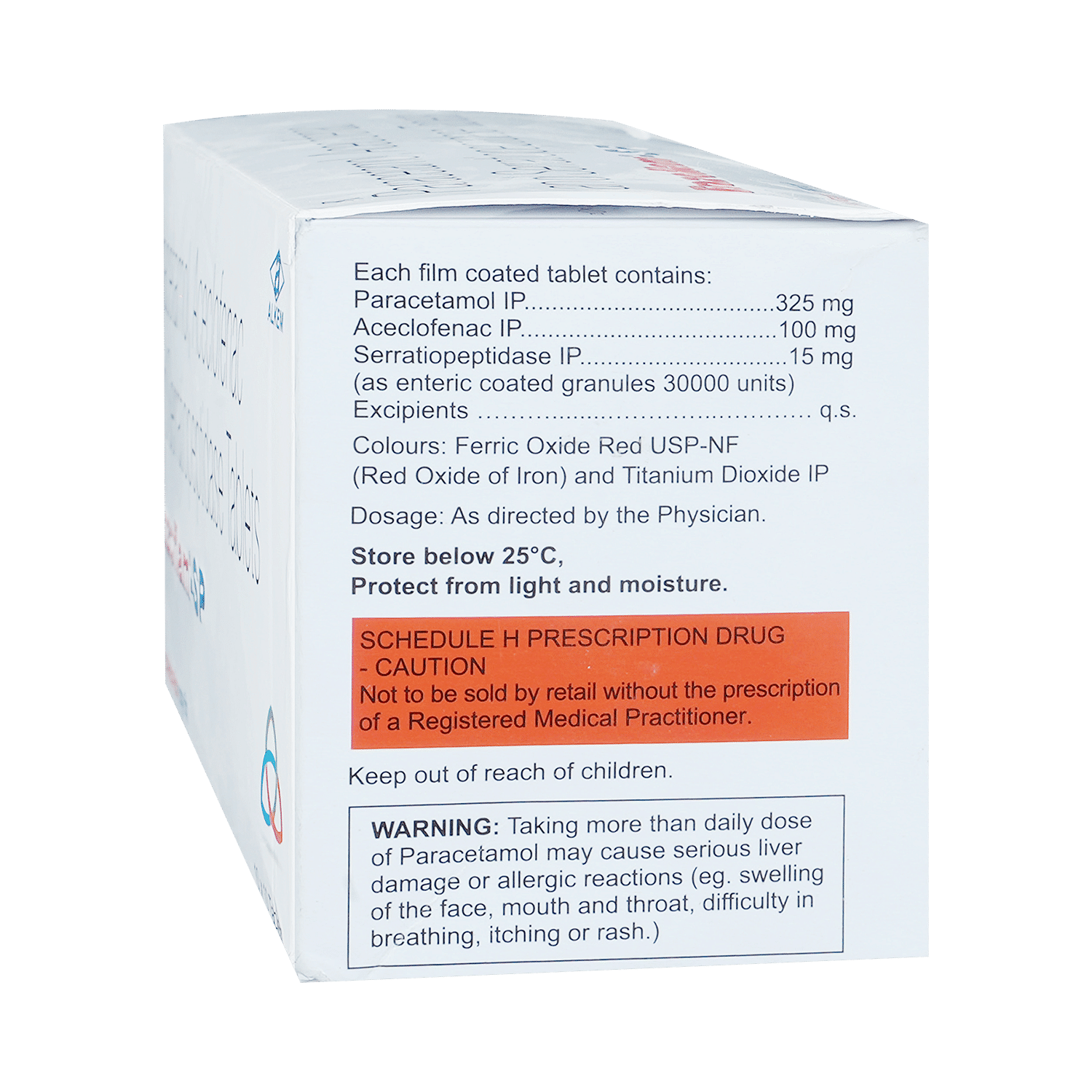
Enzoflam-SP Tablet

Muclonac SP 100mg/325mg/15mg Tablet
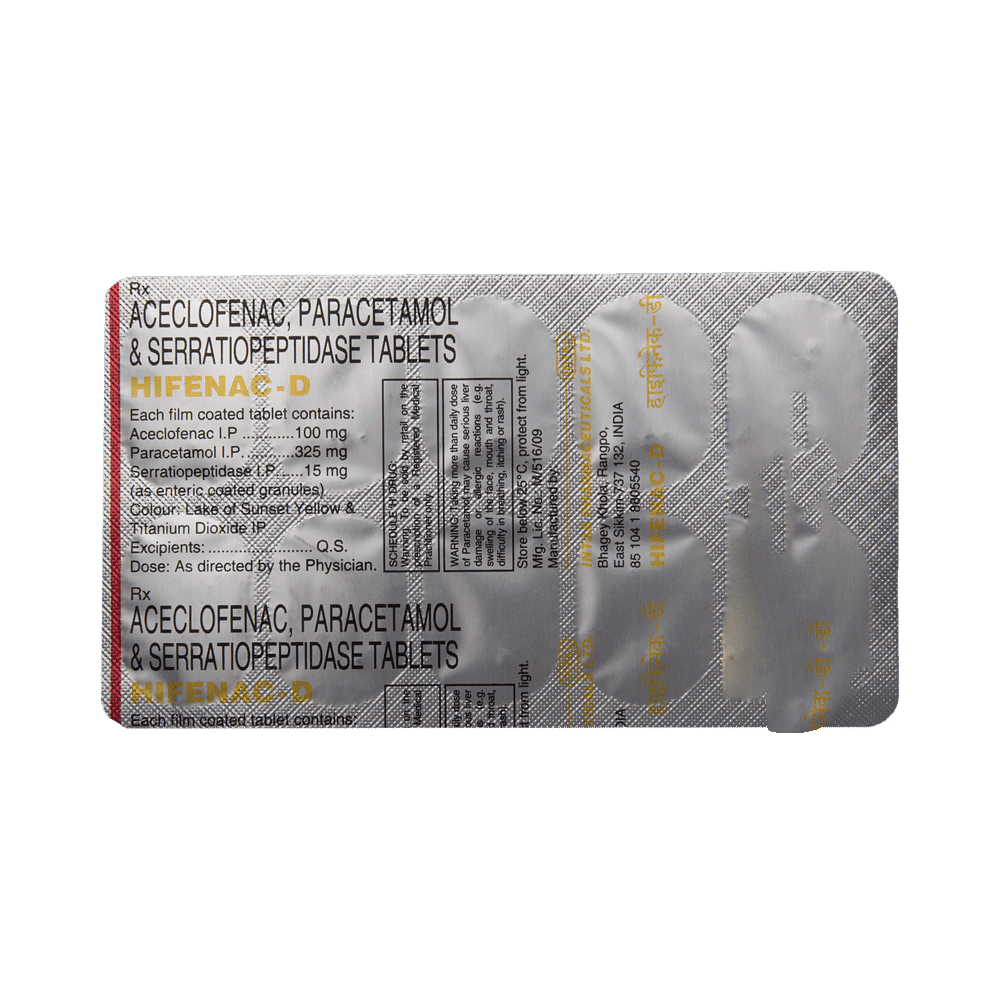
Hifenac-D Tablet
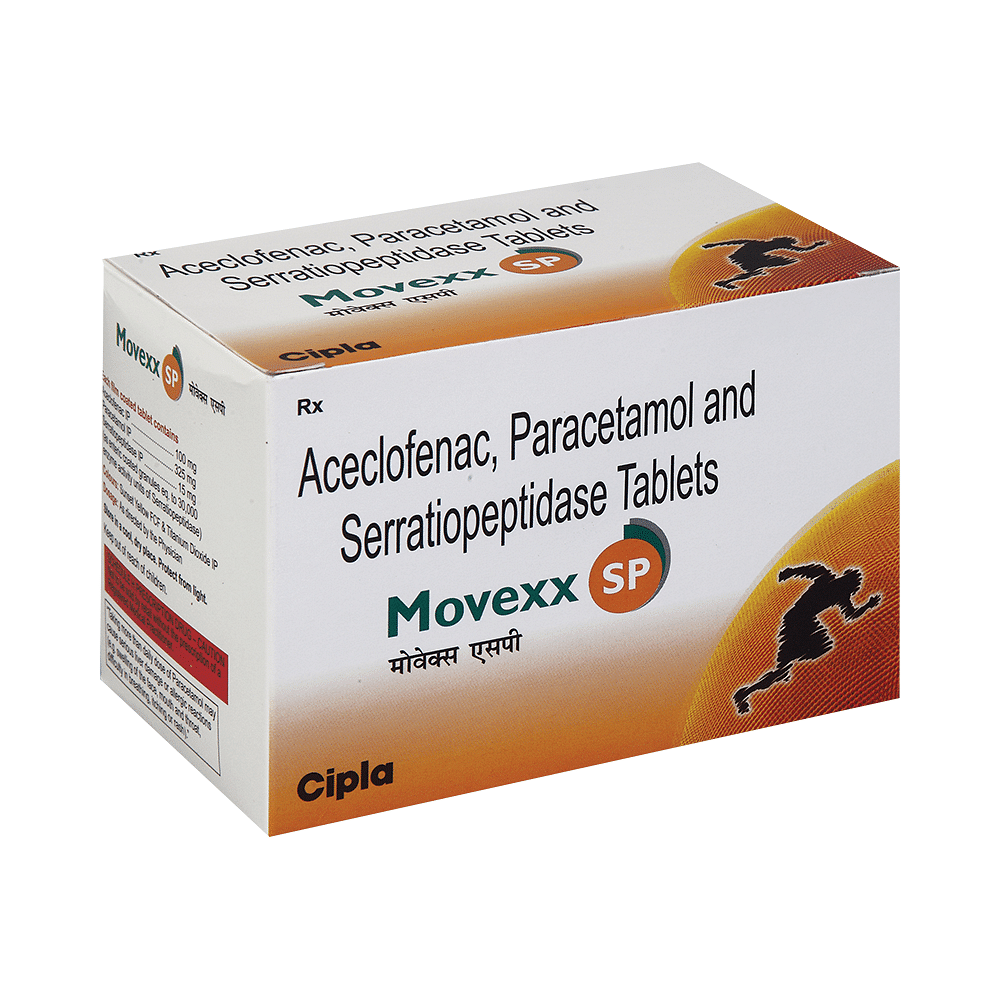
Movexx SP Tablet
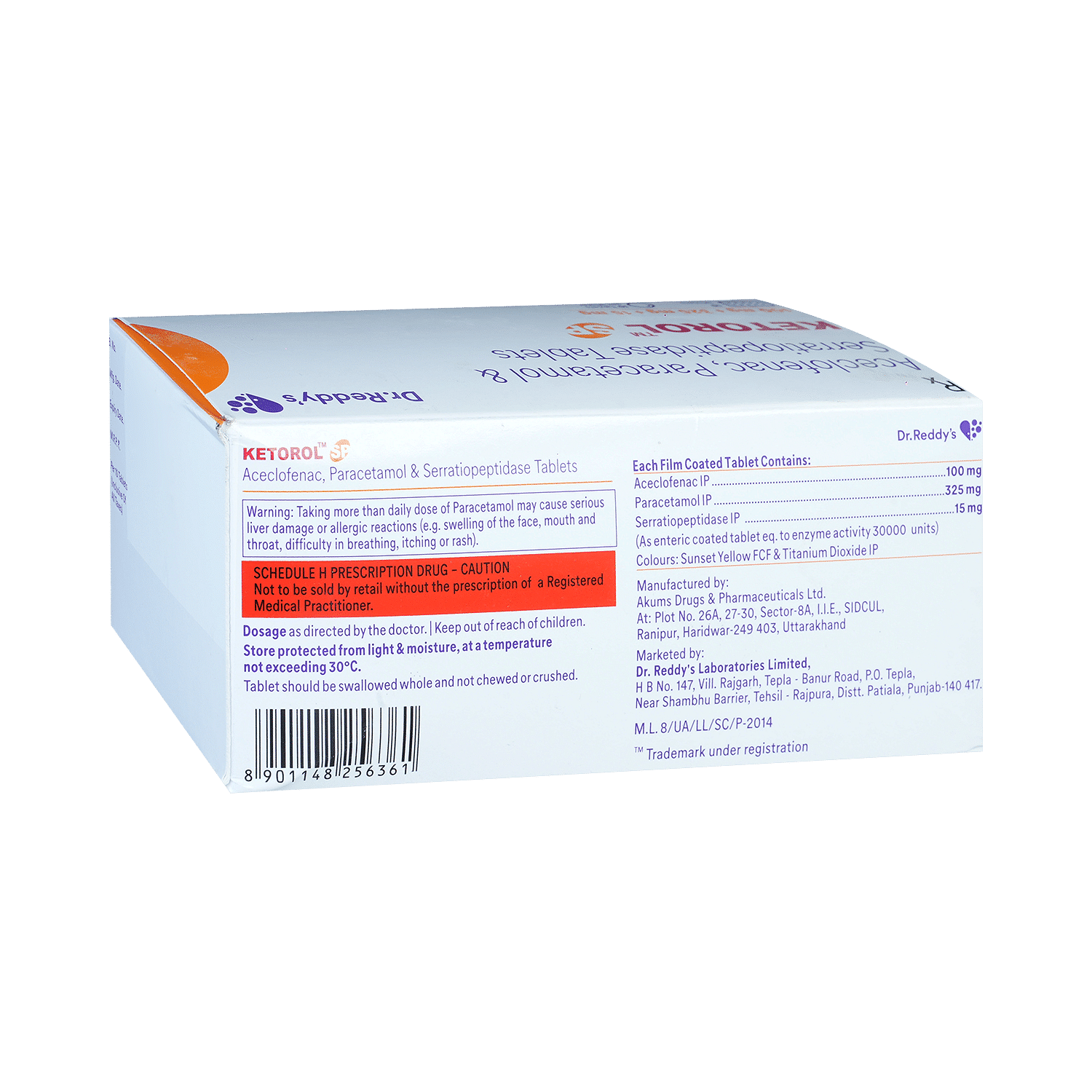
Ketorol SP Tablet
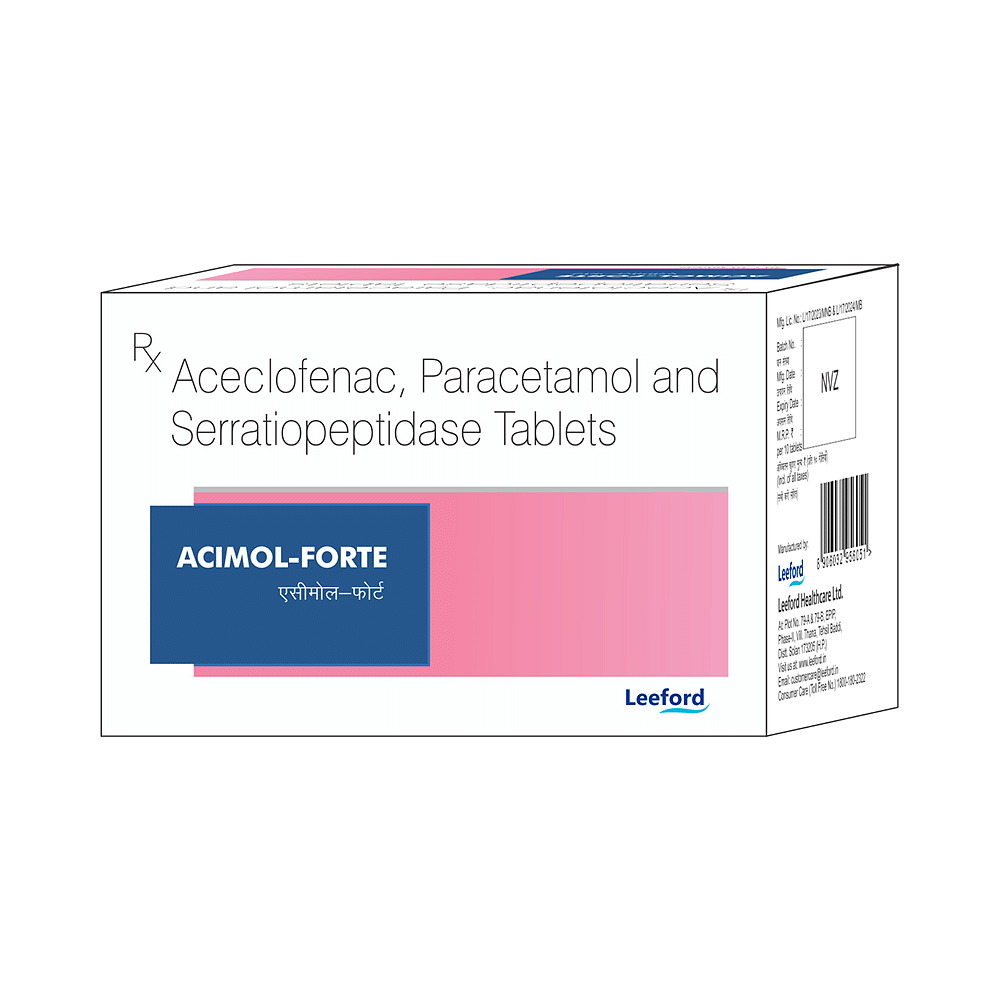
Acimol-Forte Tablet
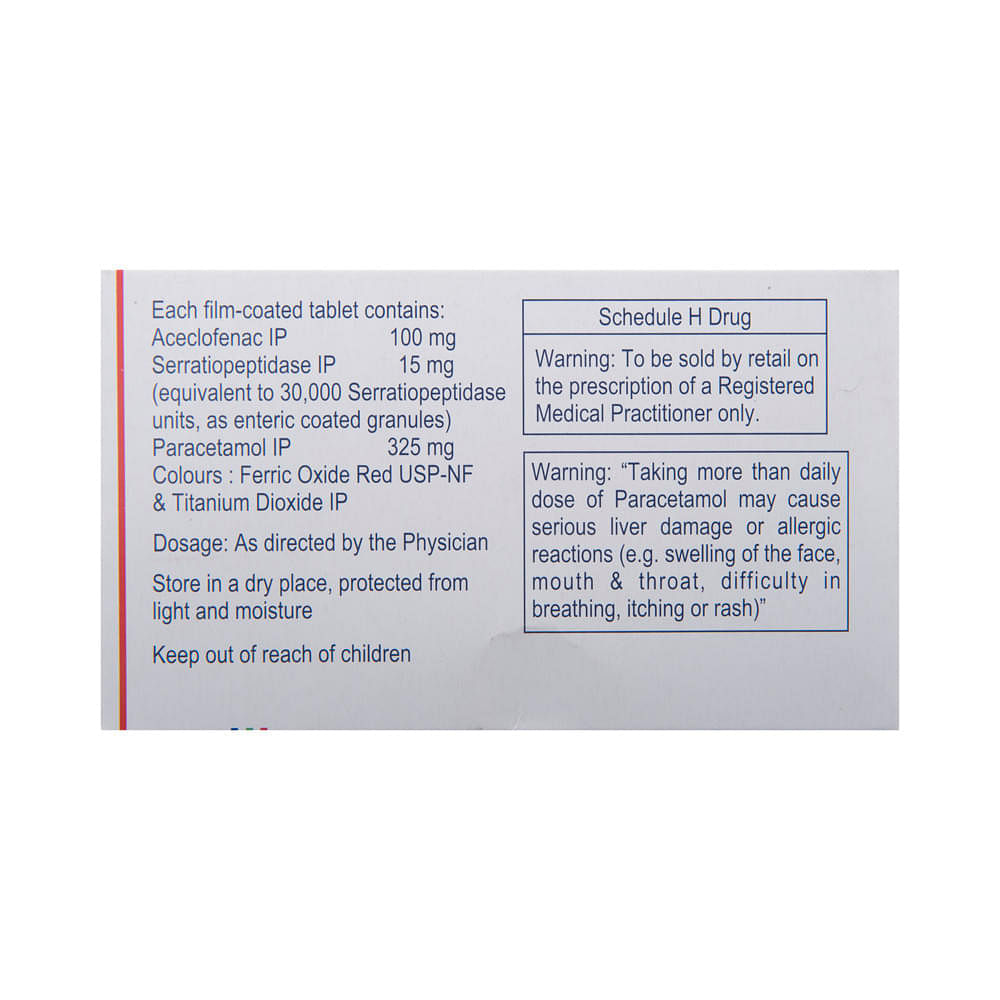
Zerodol-SP Tablet

Erinac SP 100mg/325mg/15mg Tablet

Seradic-AP Tablet
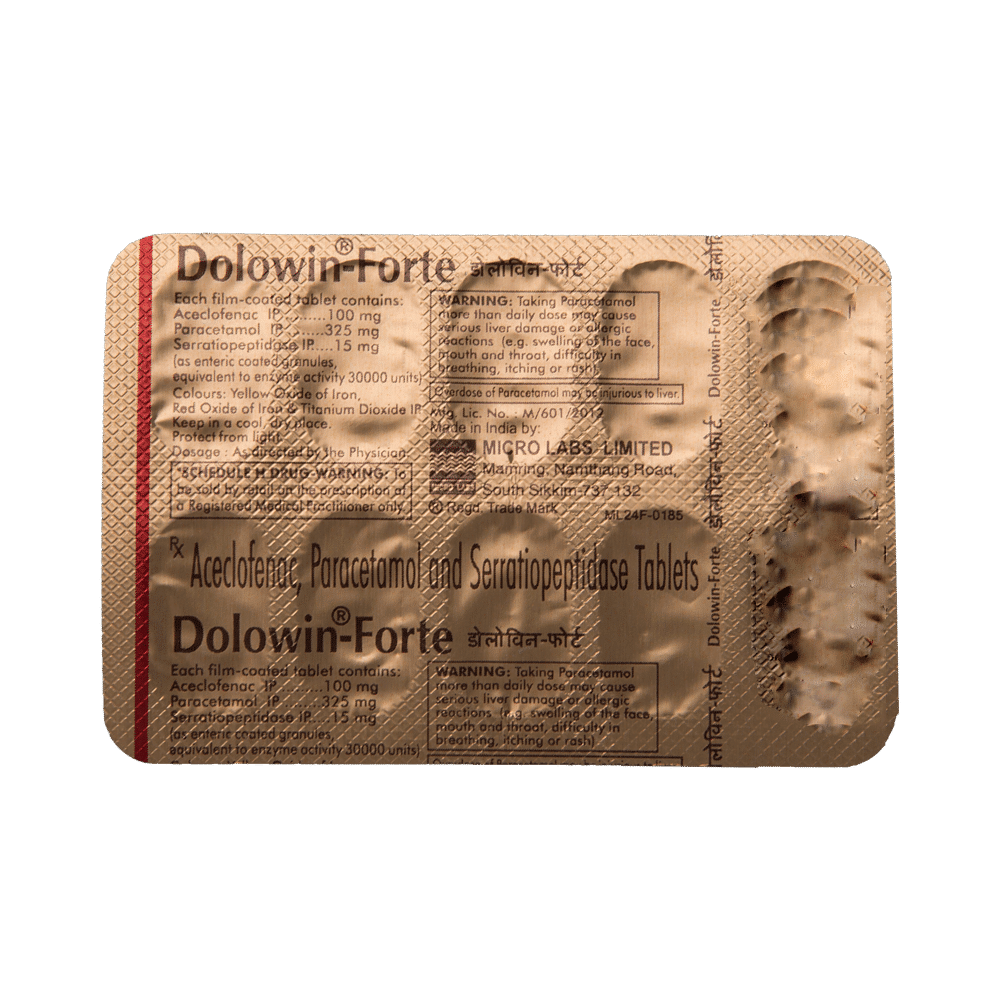
Dolowin-Forte Tablet
Frequently asked questions
What is Pafev-SP Tablet?
Pafev-SP Tablet contains a combination of three medicines: Aceclofenac, Paracetamol, and Serratiopeptidase. This medication helps relieve pain and inflammation by lowering levels of chemical substances that cause these symptoms in the body.
Is it safe to take Pafev-SP Tablet?
Pafev-SP Tablet is generally safe for most patients, but some may experience unwanted side effects such as nausea, vomiting, stomach pain, heartburn, and diarrhea. If you experience persistent problems after taking the medication, inform your doctor immediately.
Can I stop taking Pafev-SP Tablet when my pain is relieved?
Pafev-SP Tablet is usually taken for a short time and can be stopped once your pain is relieved. However, continuing to take it if your doctor has instructed you to do so.
Can Pafev-SP Tablet cause nausea and vomiting?
Yes, Pafev-SP Tablet can cause nausea and vomiting in some patients. If experiencing these symptoms, take it with milk, food, or antacids. Avoid consuming fatty or fried foods while taking this medication. In case of vomiting, drink plenty of water or other fluids in small frequent sips. Consult your doctor if vomiting persists and you notice signs of dehydration like dark-colored urine and a low frequency of urination. Do not take any other medications without consulting your doctor.
Can Pafev-SP Tablet cause dizziness?
Yes, the use of this medication can cause dizziness (feeling faint, weak, unsteady or lightheaded) in some patients. If you feel dizzy or lightheaded, it's best to rest for a while and resume once you feel better.
Are there any specific contraindications associated with taking Pafev-SP Tablet?
It's not recommended for patients with known allergies to any of the components of this medication or other painkillers (NSAIDs). Avoid use in patients with a history of stomach ulcers, active or recurrent stomach ulcers/bleeding. It should also be avoided in patients with a history of heart failure, high blood pressure, and liver or kidney disease.
Can I take Pafev-SP Tablet with vitamin B-complex?
Yes, this medication can be taken with vitamin B-complex preparations. This helps relieve pain while also addressing any potential vitamin deficiency contributing to your symptoms.
Can the use of Pafev-SP Tablet cause damage to kidneys?
Long-term use of this medication can lead to kidney damage. Prostaglandins produced naturally by the kidneys protect them from damage, but painkillers reduce these levels. Consequently, long-term painkiller use can harm the kidneys. It is not recommended for patients with pre-existing kidney disease.
Can I take a higher dose of Pafev-SP Tablet than recommended?
Taking a higher than recommended dose can increase chances of side effects. If you're experiencing increased pain severity or your pain isn't relieved by the recommended dosage, consult your doctor for an evaluation.
What are the instructions for storage and disposal of Pafev-SP Tablet?
Keep this medication in its original packaging, tightly closed. Store it according to the directions on the label or package. Do not use expired medicine and dispose of unused medication safely by putting it into an approved container for chemical waste disposal.


